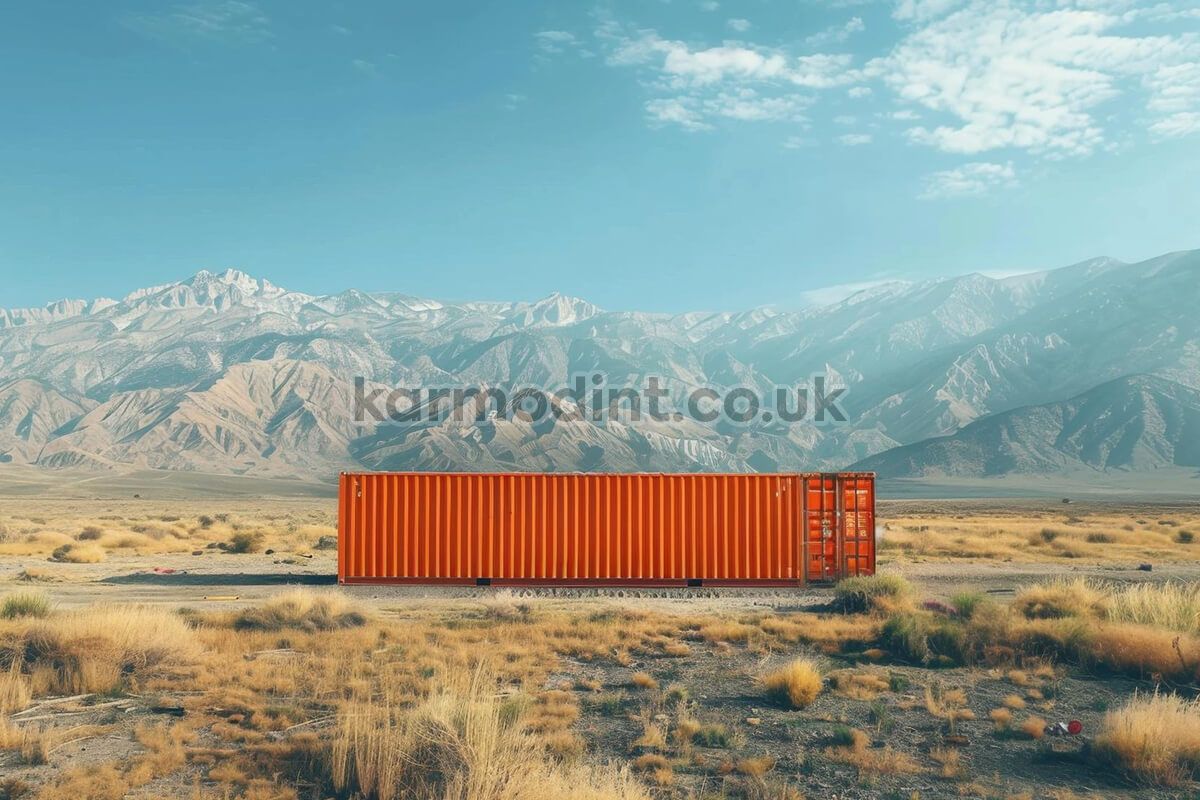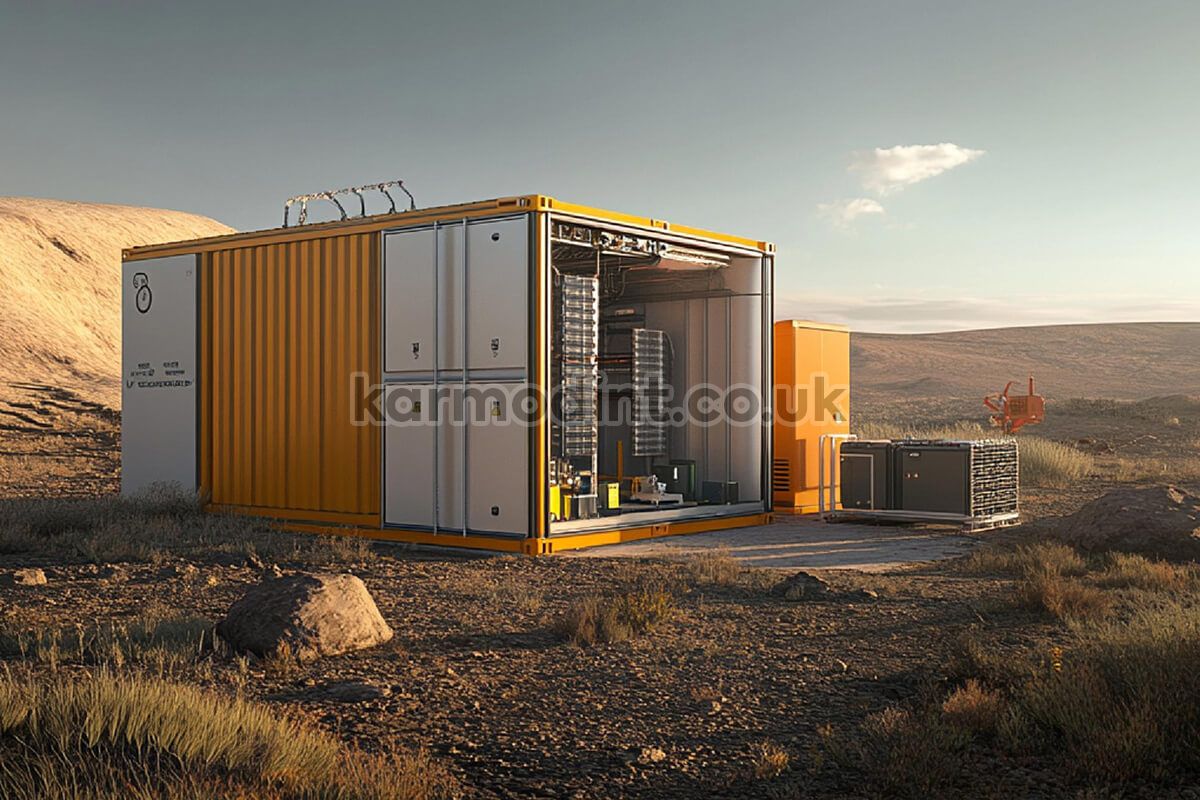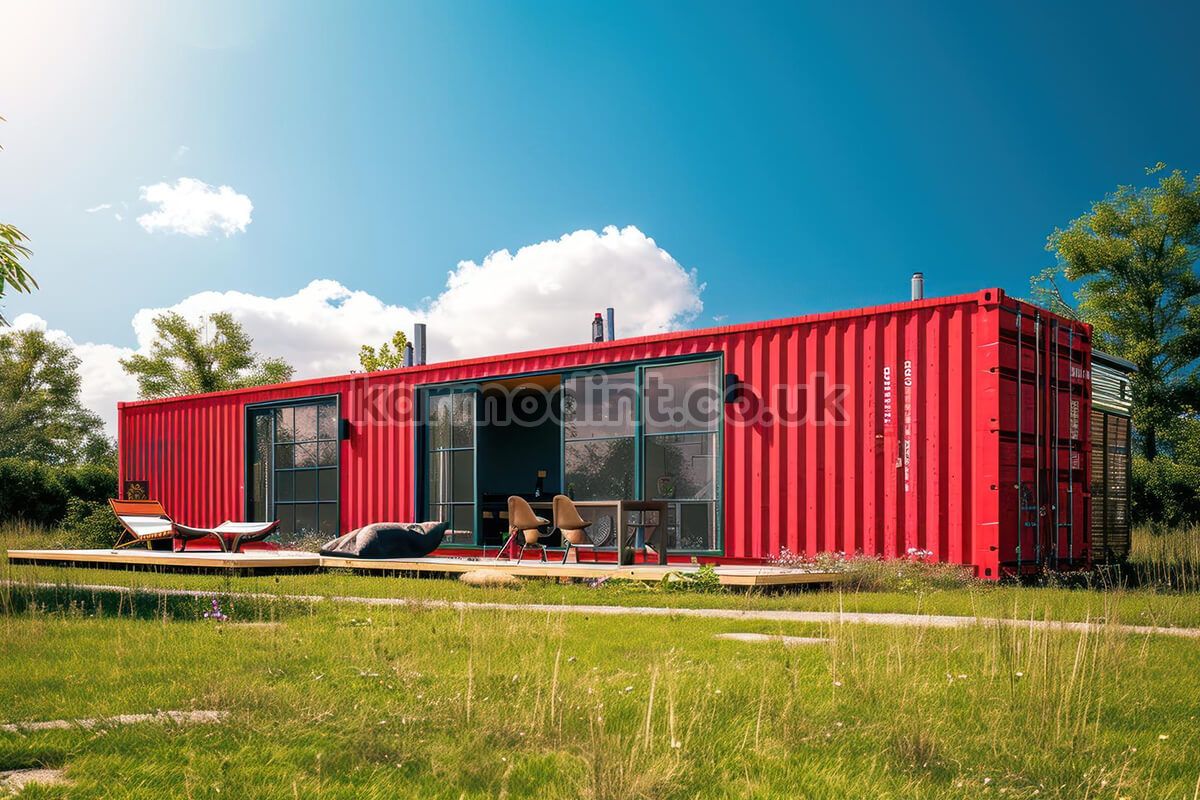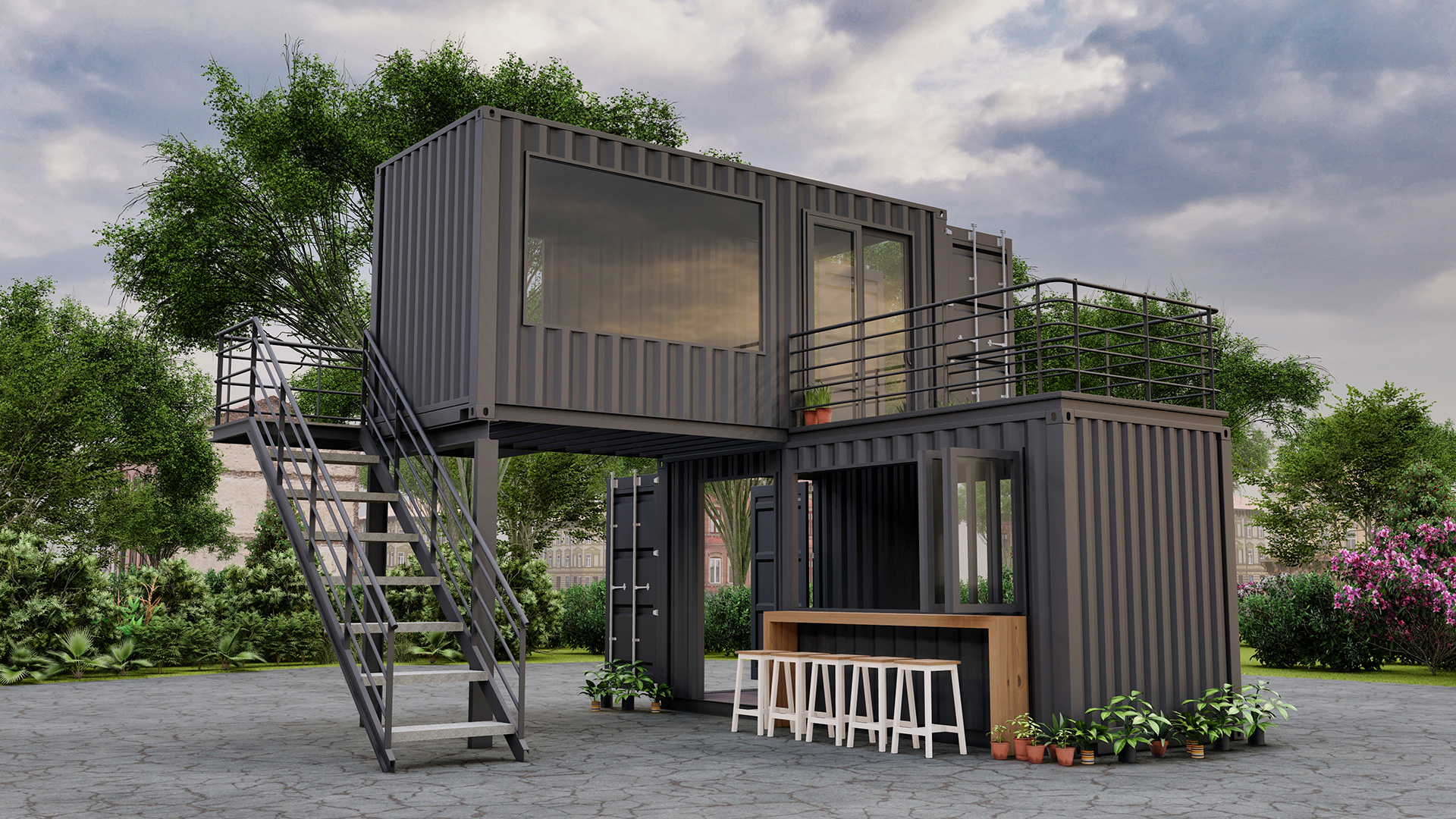
When considering adding a portable cabin to your private land, there are several factors to keep in mind. These cabins offer flexibility and convenience, making them an ideal choice for various purposes, from guest houses to farm workers accommodation. However, it's essential to understand the legal and logistical aspects before making a decision. One of the first considerations is whether you need planning permission. This can vary depending on your location and the intended use of the cabin. In some cases, these structures might be considered temporary, which can simplify the approval process. However, it's always wise to consult local regulations or seek advice from experts like Karmod, who specialize in these installations. Ensuring your cabin meets all the requirements not only provides peace of mind but also adds value to your property.
The idea of placing a shipping container on your property has gained popularity due to its affordability and versatility. Whether you're looking to create extra storage space or a unique living area, shipping containers offer a practical solution. However, before you move forward, it's crucial to understand the rules and regulations that apply.
In many areas, shipping containers are classified as temporary structures, which can sometimes bypass stringent building codes. But this isn’t always the case. It's important to research local zoning laws to determine if you can legally place a shipping container in the field or even on grass in your yard. At Karmod, we not only provide high-quality shipping containers but also offer guidance on how to navigate these regulations, ensuring a smooth and compliant installation process.

Using a shipping container on agricultural land is an innovative way to add storage or even create functional spaces like workshops or offices. The durability and portability of shipping containers make them an excellent choice for agricultural settings, where flexibility is often required. But, as with any structure, there are specific regulations that must be adhered to.
Agricultural land often has unique zoning laws that might limit the use of permanent or semi-permanent structures. However, shipping containers are frequently viewed as temporary, allowing for greater flexibility. Before purchasing a container in the field for sale, it's important to consult local planning authorities. At Karmod, we provide not only the containers themselves but also expert advice to ensure that your project complies with all necessary regulations.
Planning permission for a portable cabin on your land can be a complex topic, as it largely depends on the intended use and location. In many cases, portable cabins used as temporary structures may not require full planning permission, but it's essential to verify this with your local council or planning authority.
Whether you're considering using a container in the field or setting up a shipping container on grass for a home office or site accommodation, understanding the local regulations is crucial. At Karmod, we make this process easier by offering both high-quality portable cabins and the expertise needed to ensure your installation is fully compliant with all legal requirements.

When it comes to obtaining planning permission for adding structures like portable cabins or shipping containers to your property, several key factors come into play. Understanding these factors can significantly increase your chances of a successful application, whether you're considering placing a container in the field or a shipping container on grass.
Firstly, the intended use of the structure is crucial. For example, a portable cabin used as a temporary office might face different regulations compared to one intended as a permanent dwelling. Additionally, the size, location, and impact on the surrounding environment are critical considerations. Local authorities will assess whether the structure blends well with the existing landscape and complies with zoning laws. Engaging with experienced providers like Karmod can streamline this process, as we offer expert guidance on ensuring your project meets all local requirements.
Moreover, the duration for which the structure will be in place is another critical factor. Temporary structures often require less stringent permissions, but it's vital to clarify this with your local council. Karmod's expertise in this area ensures that you have all the necessary information to navigate the complexities of planning permission smoothly.
Adhering to building regulations is essential when adding any structure to your property, be it a portable cabin or a shipping container. These regulations are in place to ensure safety, durability, and environmental sustainability, and failing to comply can result in legal complications or the need for costly alterations.
One of the primary aspects of building regulations is ensuring that the structure is safe and stable. This includes proper foundation work, adequate ventilation, and appropriate insulation, especially for structures intended for human occupancy. Whether you're placing a shipping container in the field or installing a portable cabin, it's crucial to work with providers like Karmod, who understand the intricacies of these regulations and offer compliant solutions.
Additionally, fire safety, accessibility, and energy efficiency are also key components of building regulations. Ensuring that your structure meets these standards not only keeps you compliant but also adds to the long-term value and functionality of your property. Karmod is committed to providing structures that not only meet but exceed these standards, giving you peace of mind from the start of your project.

Understanding when planning permission is not required can save you both time and money as you consider adding structures like portable cabins or shipping containers to your property. While regulations can vary depending on your location and the specific use of the structure, there are several common situations where planning permission might not be necessary:
Before proceeding with any construction, it's important to verify whether your project qualifies for these exemptions. Consulting with experts like Karmod can ensure that you fully understand your rights and avoid any potential legal issues. We provide not only high-quality structures but also the expertise needed to navigate the complexities of planning regulations.
When considering adding a portable cabin or a shipping container to your property, understanding permitted development rights can be a crucial advantage. These rights allow certain types of construction and modifications to be carried out without the need for planning permission, making the process quicker and more straightforward. However, navigating these rights requires a good understanding of local regulations and the specific conditions that apply.
Permitted development rights often cover a range of minor construction activities, such as adding small outbuildings, sheds, or even shipping containers for storage purposes. To effectively navigate these rights, it’s important to first understand the limits that apply to your region. Each area has specific size, height, and use restrictions under permitted development rights. For instance, a container in the field might be allowed if it doesn’t exceed certain dimensions or if it’s not used as a permanent living space. By knowing these limits, you can ensure compliance and avoid unnecessary complications.
Another crucial aspect is checking for exemptions. Even if your project falls under permitted development rights, there may be exceptions, especially in areas of outstanding natural beauty, conservation areas, or listed properties. It's essential to determine whether your property is subject to any such exemptions that could necessitate full planning permission. Consulting with experts like Karmod can help you navigate these complexities and ensure that your project proceeds smoothly, with all necessary permissions in place.
Setting up a portable cabin on your private land can be an exciting project that adds value and functionality to your property. Whether you're using it as a guest house, office, or retreat, the process requires careful planning and execution to ensure a smooth installation.
The first step is to choose the right location on your land. It's important to consider factors like access, sunlight, and drainage when selecting the spot for your portable cabin. The terrain should be level and stable, as this will make the installation easier and ensure the cabin remains secure over time. Additionally, you'll need to verify local regulations and determine if any planning permission is required. Consulting with experts like Karmod can help you navigate these legal aspects, ensuring that your project complies with all necessary regulations.
Once the location is set, preparing the site is crucial. This may involve clearing vegetation, leveling the ground, and laying a suitable foundation, depending on the type of cabin and the soil conditions. A well-prepared site not only facilitates the installation process but also enhances the durability and stability of your portable cabin. Working with experienced professionals ensures that every step is handled with precision, from site preparation to the final installation.
Before placing a shipping container on your land, proper preparation is essential to ensure a stable and secure installation. The first consideration is the site itself. You'll need to choose a flat, well-drained area to prevent water accumulation around the container, which could lead to corrosion or instability over time.
Once you've identified the ideal location, the next step is to prepare the ground. This often involves clearing the area of any debris, vegetation, or rocks that could interfere with the placement of the container. Depending on the soil type and intended use, you may also need to lay down a gravel base or concrete pads to provide a solid foundation. These measures help to distribute the weight of the container evenly and prevent shifting or settling, especially when the ground is soft or prone to movement.
Additionally, it's important to consider access for delivery and installation. Ensure that there is sufficient space for the delivery vehicle to maneuver and place the container exactly where you want it. Working with a reputable provider like Karmod can simplify this process, as we offer comprehensive support, from site assessment to the final positioning of your container in the field.
Positioning and installing a shipping container on your property requires careful consideration to ensure long-term stability and functionality. The first aspect to focus on is the orientation of the container. Positioning it in a way that maximizes natural light and ventilation can make the interior more comfortable, especially if the container will be used as a living or working space.
When it comes to installation, ensuring a level foundation is crucial. A well-prepared base, whether it's gravel, concrete pads, or another stable material, provides the necessary support to keep the container level and prevents it from sinking or shifting over time. This foundation should be compacted and leveled before the container is placed, as even minor unevenness can lead to structural issues down the line.
Another key factor is securing the container to prevent movement, especially in areas prone to strong winds or seismic activity. Anchoring the container to the foundation or adding tie-downs can provide additional stability. Karmod’s expertise in container installations ensures that these best practices are followed, offering you a safe, secure, and durable setup that meets all your needs.
Shipping containers have evolved far beyond their original purpose of transporting goods. Today, they are being creatively repurposed for a variety of innovative uses on private land, often as an alternative to a portable house. Their versatility, durability, and cost-effectiveness make them an attractive option for those looking to add unique structures to their property.
One popular use is transforming a shipping container into a modern, compact home or guest suite. These structures can be customized with windows, doors, and insulation to create a cozy living space that’s both stylish and functional. Another creative application is using a shipping container as a home office or studio. The secure, weather-resistant nature of containers makes them ideal for setting up a quiet, dedicated workspace away from the main house.
For those with agricultural land, shipping containers can serve as robust storage units for tools, equipment, or harvested crops. They can also be used to create animal shelters, greenhouses, or even mobile workshops. With the right modifications, containers in the field can be adapted to almost any need, offering a sustainable and cost-effective solution.
Using shipping containers on private land offers a range of benefits, but it’s also important to consider the potential drawbacks before deciding if this is the right choice for your project.
One of the major advantages of shipping containers is their durability. Built to withstand harsh conditions at sea, these containers are made from strong, weather-resistant materials that can last for decades with minimal maintenance. They are also incredibly versatile and can be used for a variety of purposes, from storage to living spaces. Additionally, shipping containers are a cost-effective option, often cheaper than traditional building materials and methods. This affordability makes them an attractive choice for homeowners looking to add functional space without breaking the bank.
However, there are also disadvantages to consider. The aesthetic appeal of a shipping container may not suit everyone’s taste, and integrating it into your property’s existing landscape can be challenging. Additionally, while containers are robust, they require proper insulation and ventilation to be comfortable living or working spaces, which can add to the overall cost. There may also be local regulations and zoning laws that restrict the use of containers on private land, so it’s crucial to check with your local planning authority before starting your project.
Shipping containers offer numerous benefits that make them a practical and appealing option for a variety of uses on private land. One of the primary benefits is their strength and durability. Made from corten steel, these containers are designed to withstand extreme conditions, making them a reliable choice for long-term use. This durability also means that shipping containers require minimal maintenance, providing a hassle-free solution for additional space on your property.
Another significant benefit is the versatility of shipping containers. They can be easily modified and customized to suit a wide range of needs, from storage units to fully-equipped living spaces. This flexibility allows you to adapt a container in the field to your specific requirements, whether you need extra storage for tools, a home office, or even a small guest house. Moreover, shipping containers are an eco-friendly option, as repurposing them reduces the need for new construction materials, helping to minimize your environmental impact.
While shipping containers offer many advantages, there are some potential drawbacks to be aware of. One of the main concerns is the need for proper insulation and ventilation. Without adequate insulation, shipping containers can become extremely hot in the summer and cold in the winter, making them uncomfortable for use as living or working spaces. This can lead to additional costs for insulation materials and installation.
Another potential drawback is the limited space. Shipping containers have a fixed size, typically 20 or 40 feet long, which can restrict their usability for larger projects. While they can be combined to create larger structures, this requires additional modifications and may complicate the design and layout process. Additionally, the industrial appearance of a shipping container may not appeal to everyone, and integrating it aesthetically with the surrounding environment can be challenging.
Lastly, it’s important to consider local regulations and zoning laws. Some areas may have restrictions on the use of shipping containers on private land, so it’s essential to research and obtain any necessary permits before proceeding with your project.

From one end of the world to the other, we give our clients access to the prefab sector produced with the new technology of the world. We guarantee reliability through technology and innovation, flexible business models and intelligent supply chain solutions that create value for you by following the project's production network.
Discover